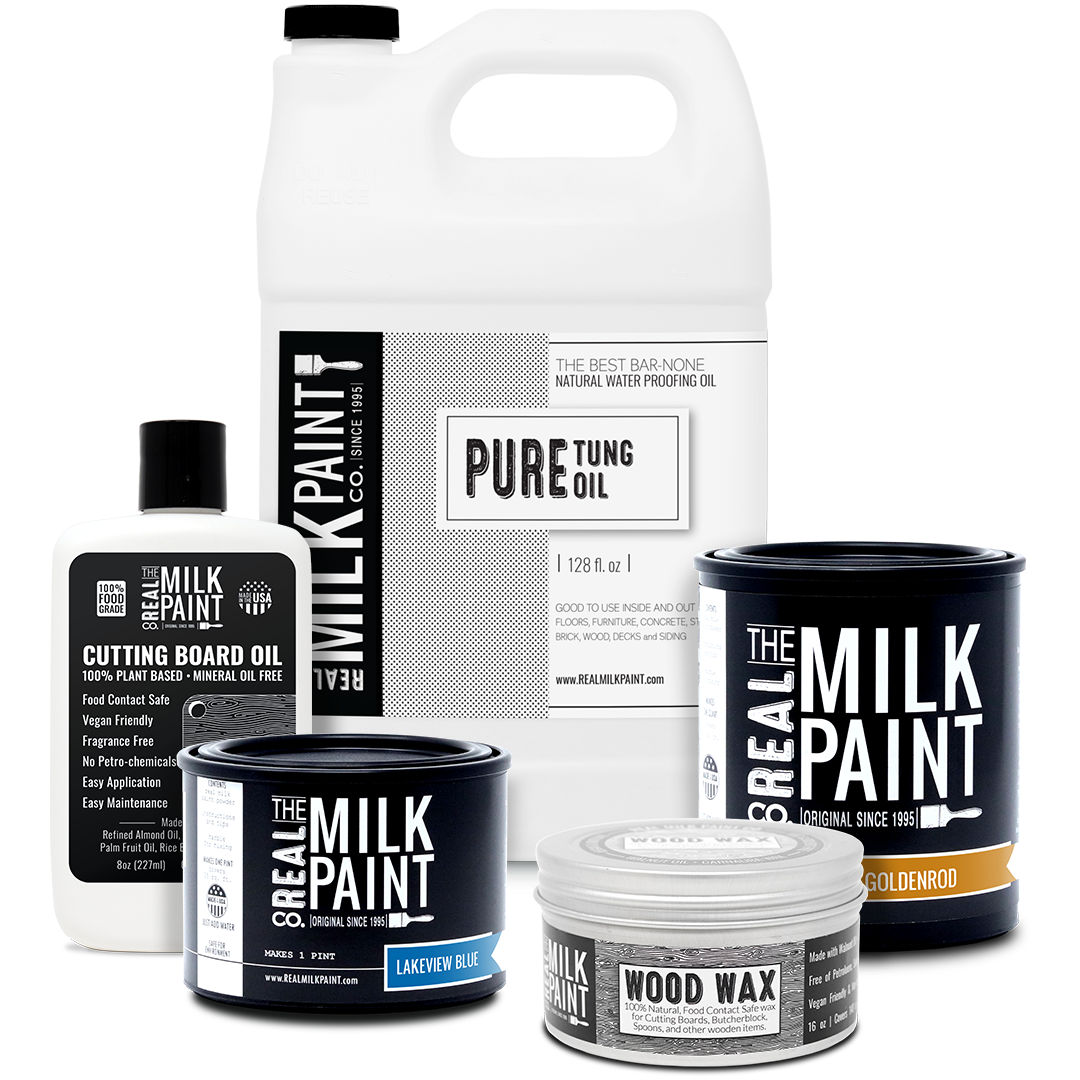While it makes sense to use a paint brush for milk paint application when you’re working on small jobs, it’s typically time-consuming to use this technique for large surfaces like walls and kitchen cabinets and larger furniture like armoires. This leaves many do-it-yourselfers asking, “Can I spray milk paint to speed up the process?” A spray gun application often proves a game changer when you want to cover lots of space in a short amount of time, but it usually requires a bit of special preparation and a little practice to hone your desired spray pattern technique. Here are some reasons why spraying milk paint makes sense and some tips and techniques that help ensure smooth sailing for your DIY project.
Benefits of Spray Painting With Milk Paints
The most obvious benefit of spraying milk paint instead of brushing it on is it saves time and effort. It also saves you money on materials since you have to thin it down to a consistency that flows freely through paint sprayers, making projects more economical. Other benefits include things common to both brush and spray application of Real Milk Paint, such as natural ingredients with no volatile organic compounds (VOCs) and low odor, plus a flat finish and easy cleanup. Advantages relative to spraying milk paint are smooth, even coverage with an airbrushed-like effect that helps prevent the appearance of bulky brush marks after a thick application. Additionally, quick-drying times mean you can spray on more coats with shorter waiting periods, providing a professional look with excellent leveling.
Watch Anne Of All Trades explore painting windsor chairs using Real Milk Paint and a sprayer!
How to Apply Milk Paint With a Paint Sprayer
When spraying milk paint instead of brushing it on the surface you’re painting, keep in mind that the spray pattern needs to flow freely for effective application. Real Milk Paint comes in powder form and mixes with water, making it simple to thin down to the right consistency for a spray gun application. Try thinning it down some and applying it to a test surface to see how it flows instead of mixing it too thin at the outset. Keep in mind that you might have to thin it up to 30% to get the results you want, and while testing the consistency, you might also want to adjust your paint sprayers pressure, spray gun tip size, and settings. In general, Real Milk Paint flows well in most paint sprayers and works fine with a 1.8 to 2.0-millimeter spray tip. Also you might use a texture paint gun for spraying thicker paints.
Once you get Real Milk Paint to the consistency that works for your equipment and surface, strain it to remove any chunks that could potentially clog your sprayer. Next, add it to your paint sprayer’s sealed container to ensure it doesn’t dry out between coats and slightly wet the surface you’re painting. When you start spraying paint over the surface in light, quick coats to prevent pooling. Your first coat of paint might look a bit chalky and dull, but subsequent applications after the water evaporates during drying tend to darken the surface to just the shade you require. Once you get the look you want, consider adding Real Milk Paint Soapstone Sealer and Wood Wax to protect your freshly painted project.
No matter if you’re spraying Real Milk Paint or using a paintbrush, it offers a simple way to add time-tested color to your favorite furnishings. The forgiving formulation helps you achieve a decorator look by transforming objects into farmhouse-fresh items that blend seamlessly with country-style and rustic decor. Shop our full collection of milk paints or contact us at 800-339-9748 for more information.

